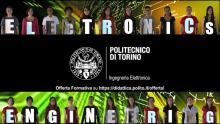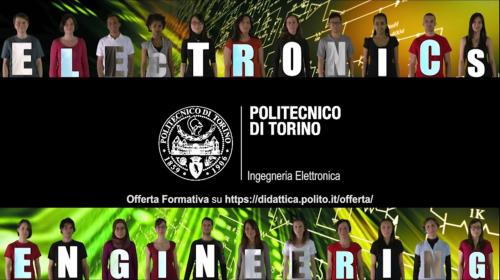An education in Electronic Engineering endorses the applicative aspects of all the disciplines involved. The study programme avoids excessive specialization by emphasizing a strong technical and basic background in the various aspects of Electronic Engineering. This allows a fast adaptation to several professional requirements, avoiding the risk of obsolescence, and allows graduates to undertand the various electronic engineer professional profiles.
Year 1 is devoted to the core engineering subjects: mathematics, physics, chemistry, computer science, together with English language.
During Year 2 you will study IT Mathematics and Physics, and you will attend courses on Electrotechnical Engineering, devices and electronic circuit. Some of the course will also be available in English.
In Year 3 you will study more in depth the practical and design aspects of Electronic Engineering and you will be able courses in English such as Applied Electronics, Measurements, Electromagnetic Fields, and Digital Systems Electronics.
At the end of your study path you are required to take a final exam based on the learning outcomes of the programme.
The degree programme is mainly Italian-taught, but some courses are also available in English.
Many courses include measurement and design labs to strengthen the interaction between mathematical models and experimental reality, which is key to this branch of engineering.
You will learn through classroom exercises, public presentations of individual or group works and, above all, by participating in measurement and design laboratories to strengthen the interaction between mathematical models and experimental reality.
Thanks to the Politong Project you can choose to attend part of the courses abroad and earn a double degree at Tongji University in Shanghai (China).
During Year 3, you can also do a company internship.

